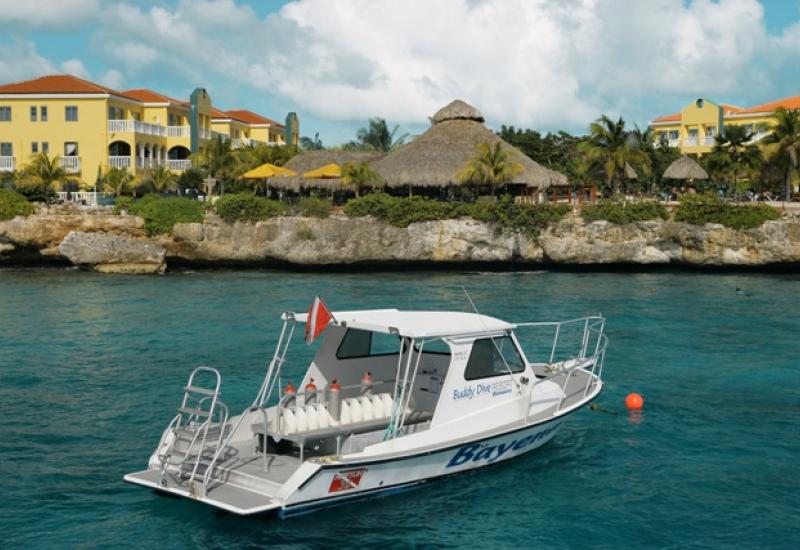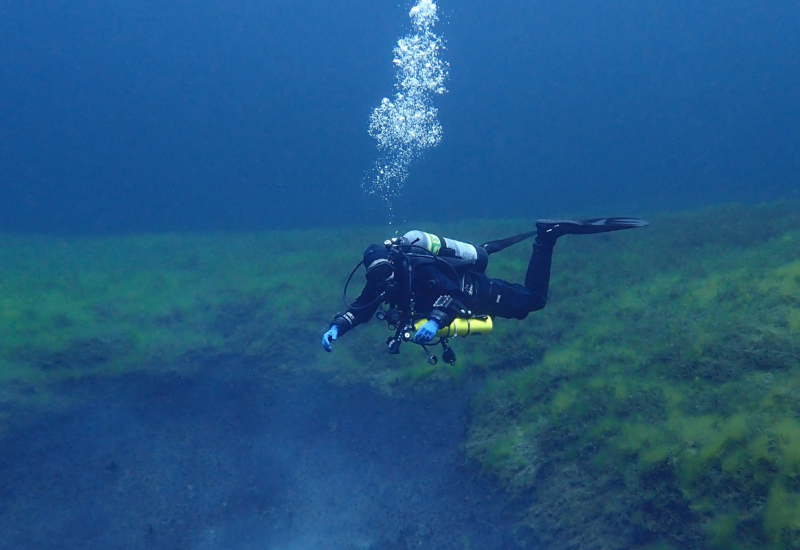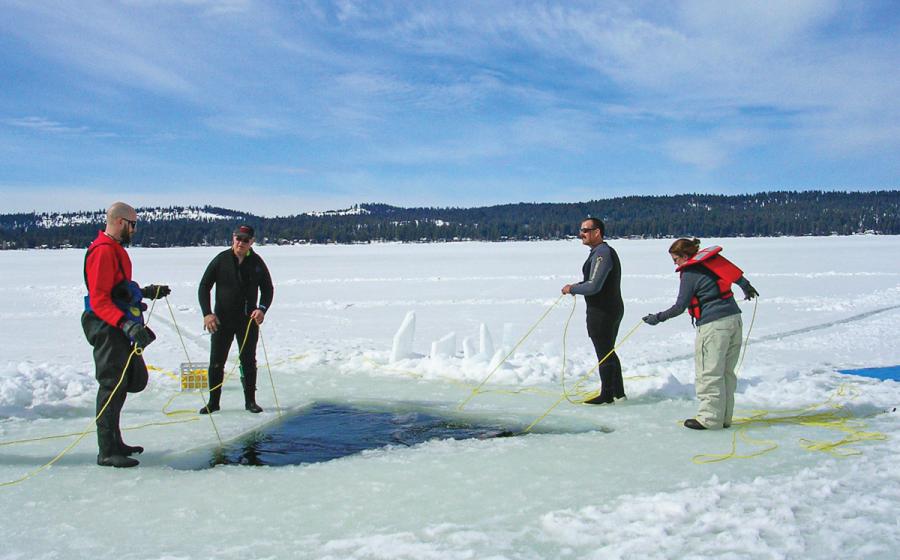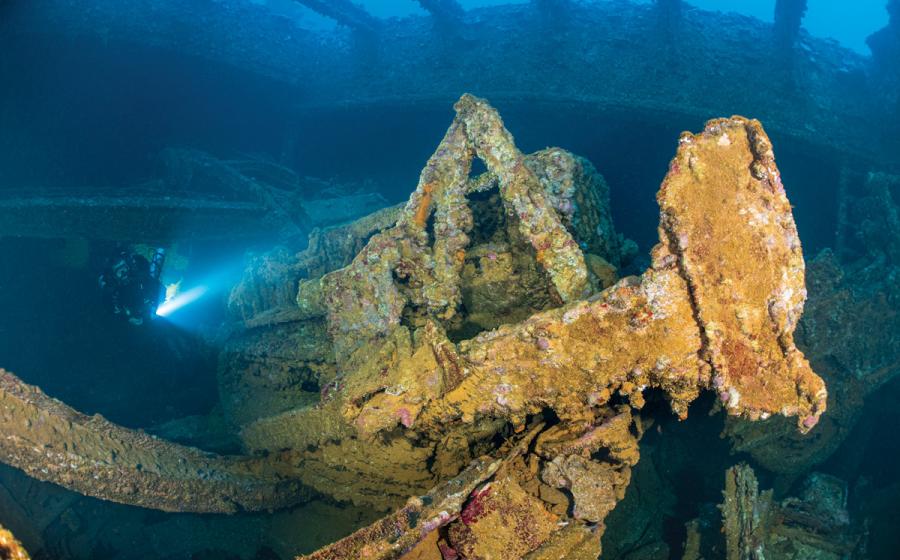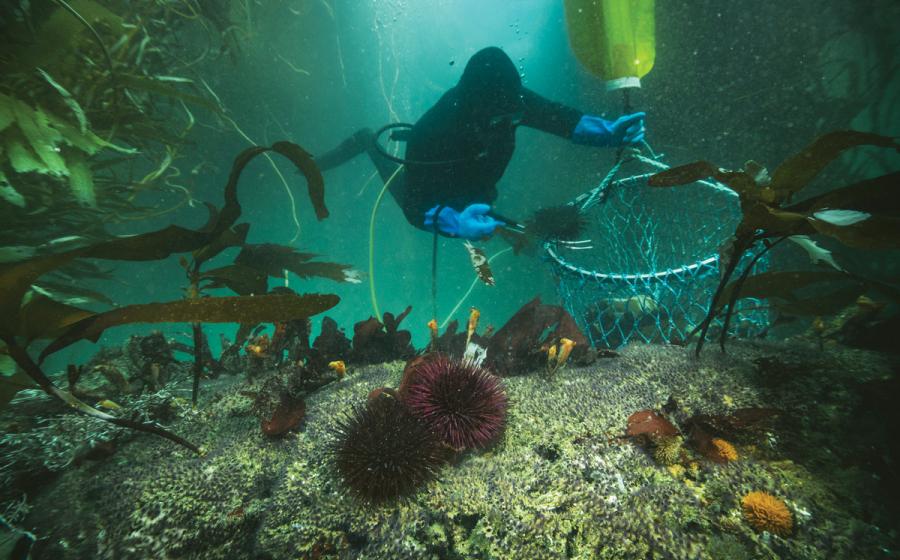5 Tips for Avoiding Nitrogen Narcosis

Narced Up
If you find yourself or your buddy acting foolishly or anxiously at depth, odds are you're experiencing Nitrogen Narcosis.
shutterstock
Being narced is a little like getting high — you feel good but your friends think you're acting stupid.
As I prepped for my advanced open-water certification, fellow divers had warned me about what it was like to have nitrogen narcosis: “You’ll be waving at all the pretty fishies and forget to look at your gauges,” one had told me. When my instructor took me to 130 feet during my training, I felt normal for the most part, though a bit chilled and nervous. My instructor had given me some simple math problems at the surface and timed me while I completed them, and now, using his slate, he asked me to do the problems again. I was just as quick and accurate underwater. But I was relieved when we began our ascent. By 75 or 80 feet, I was relaxed and enjoying the reef again. Later, I learned that for some divers, being narced causes anxiety rather than euphoria.
Researchers don’t know for sure what causes nitrogen narcosis in divers, but here’s what we do know:
Your thinking process slows down. In an emergency, you’re more likely to make mistakes.
You can’t multitask as easily. You tend to fixate on a single thing — like the “pretty fishies.” That means you’re not thinking about your gas supply, time, depth, etc.
You lose short-term memory. That means you could forget your dive plan.
TO AVOID THE EFFECTS OF NITROGEN NARCOSIS:
1. TAKE A COURSE IN DEEP DIVING
You’ll learn the warning signs of narcosis and the skills to deal with it.
2. MAKE SURE YOU'RE RESTED
Fatigue might be a contributing factor.
3. AVOID ALCOHOL AND DRUGS
A hangover, and even the effects of over-the-counter drugs, can make narcosis worse.
4. PLAN YOUR DIVE, DIVE YOUR PLAN
Decide depth, route, frequency of buddy checks, etc., and stick to it.
5. WATCH YOUR BUDDY
Does he seem uncoordinated? Silly? Acting odd? If so, signal to him to ascend. Often, an ascent of only 10 or 20 feet will clear your head.
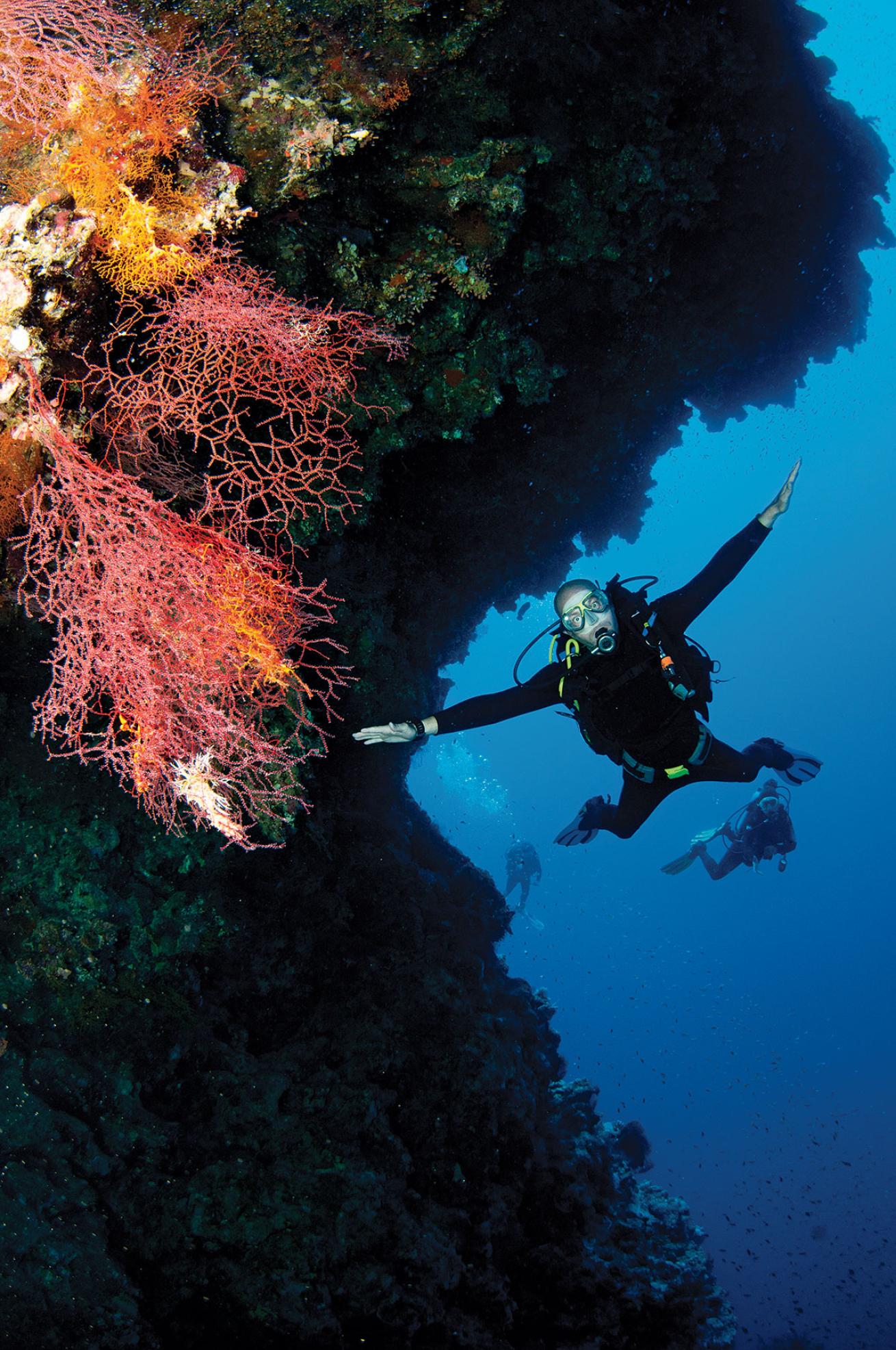
shutterstockNarced Up
If you find yourself or your buddy acting foolishly or anxiously at depth, odds are you're experiencing Nitrogen Narcosis.
Being narced is a little like getting high — you feel good but your friends think you're acting stupid.
As I prepped for my advanced open-water certification, fellow divers had warned me about what it was like to have nitrogen narcosis: “You’ll be waving at all the pretty fishies and forget to look at your gauges,” one had told me. When my instructor took me to 130 feet during my training, I felt normal for the most part, though a bit chilled and nervous. My instructor had given me some simple math problems at the surface and timed me while I completed them, and now, using his slate, he asked me to do the problems again. I was just as quick and accurate underwater. But I was relieved when we began our ascent. By 75 or 80 feet, I was relaxed and enjoying the reef again. Later, I learned that for some divers, being narced causes anxiety rather than euphoria.
Researchers don’t know for sure what causes nitrogen narcosis in divers, but here’s what we do know:
Your thinking process slows down. In an emergency, you’re more likely to make mistakes.
You can’t multitask as easily. You tend to fixate on a single thing — like the “pretty fishies.” That means you’re not thinking about your gas supply, time, depth, etc.
You lose short-term memory. That means you could forget your dive plan.
TO AVOID THE EFFECTS OF NITROGEN NARCOSIS:
1. TAKE A COURSE IN DEEP DIVING
You’ll learn the warning signs of narcosis and the skills to deal with it.
2. MAKE SURE YOU'RE RESTED
Fatigue might be a contributing factor.
3. AVOID ALCOHOL AND DRUGS A hangover, and even the effects of over-the-counter drugs, can make narcosis worse.
4. PLAN YOUR DIVE, DIVE YOUR PLAN
Decide depth, route, frequency of buddy checks, etc., and stick to it.
5. WATCH YOUR BUDDY
Does he seem uncoordinated? Silly? Acting odd? If so, signal to him to ascend. Often, an ascent of only 10 or 20 feet will clear your head.

